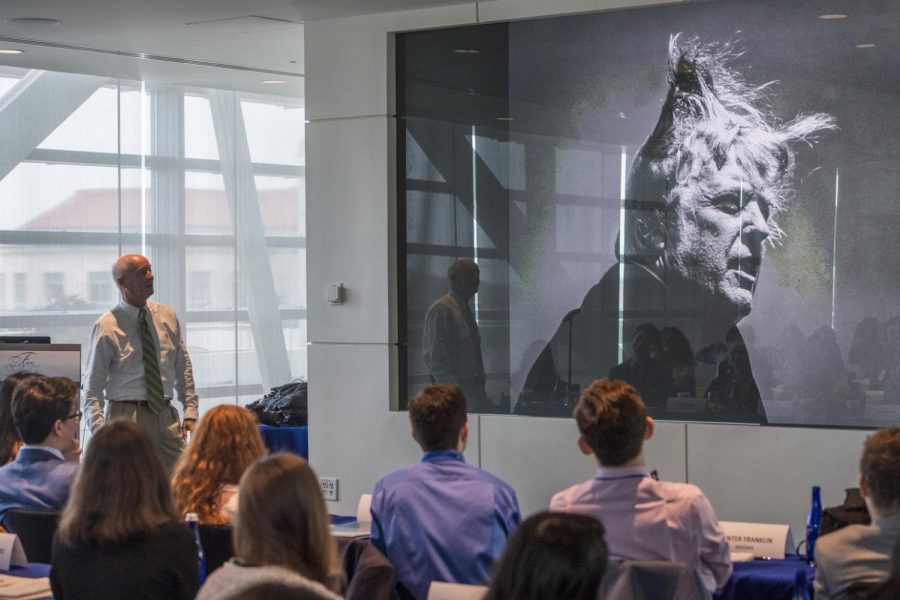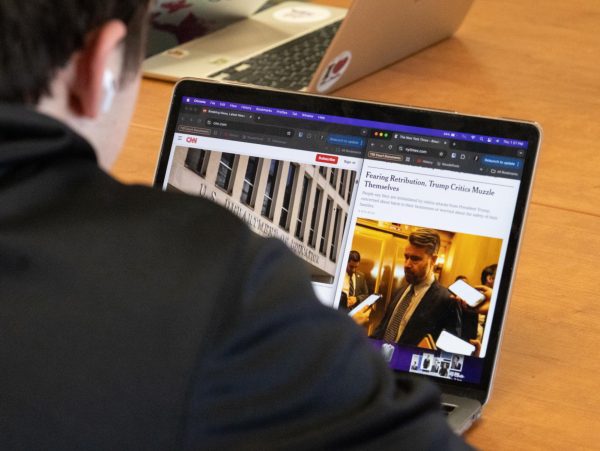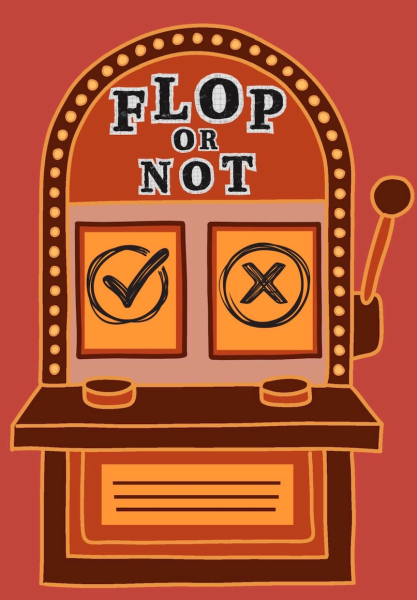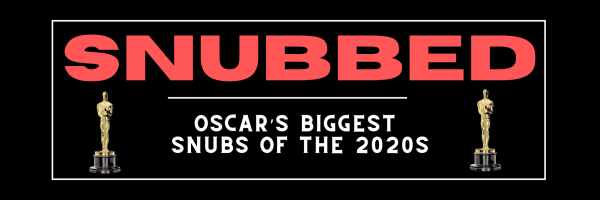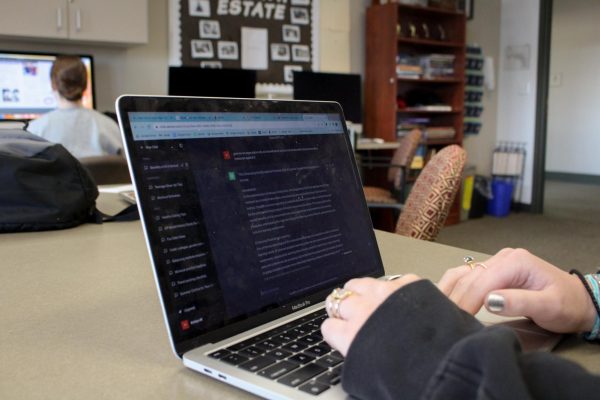Trump and the media
Looking into the complicated relationship of presidents and the press
Photo: Courtesy of Freedom Forum Institute.
Photojournalist Doug Mills explains his photograph of President Trump to students attending the Free Spirit Conference in D.C. Mr. Mills was one of the speakers at the conference and discussed his relationship with presidents as a photographer.
I first started looking into the complicated relationship between Trump and the media after attending the Al Neuharth Free Spirit Conference in D.C. this past summer. Famous photographer Doug Mills was one of the speakers at the conference and told the other students and I about his job of photographing every president from Ronald Reagan to current president Donald Trump.
Mr. Mills told us about his relationship as a photojournalist with each president, surprising us when he said that Trump was actually very open to the press. What surprised us even more was when Mr. Mills said that Trump was far more open to the press than former president Obama. This shocking statement led me to analyze the history between presidents and the media.
It is old news that President Trump hates the media, specifically the New York Times, CNN, ABC, CBS and NBC News. The president’s relationship with the media seems inadequate at best. His constant berating of the credibility of countless news sites has caused a seemingly endless back-and-forth bickering between the media and himself.
As a journalist, it is disappointing to see a lack of support and even blatant disapproval of journalism from the president; however, I think it is important to note that this is not the first time a president has been in conflict with the media.
According to History, third president Thomas Jefferson, though largely known as an advocate of the press, complained in personal letters about his distaste of the media. Part of the reason for this distaste was due obviously biased newspapers during Jefferson’s campaign for president. Newspapers would either support him and attack his competitor John Adams, or vice versa.
This example of newspapers picking sides ought to sound familiar, as it reflects the current description of media supporting either liberal or conservative policies. Look at any article from Fox News, such as one on border control, then compare it to an article about the same topic from CNN. It’s not hard to tell which network is leaning towards which side.
It is disappointing to see the bias in the articles because journalism is supposed to be objective. However, biased media does not constitute a total disregard of the news reported. If anything, it shows the necessity of paying attention to what is published in order to avoid being influenced by said bias.
I do not say this as a way to justify President Trump and his actions. The press is considered the fourth estate for a reason; it is imperative that people trust the press as it is arguably the most powerful institution keeping the government in place. But if the press wants to continue to be trusted by the people, it needs to recognize its bias and at least admit to it. I have heard too many people say they refuse to look at certain news outlets because of their reputation of being biased.
If the press wants to prove the president wrong in his description of the media as the enemy of the people, then it needs to be blameless and without fault, not giving Trump any justification for criticism. But when the media has obvious bias, it is providing Trump with examples of why not to trust what is published. True journalism is supposed to be objective.
I realize that it is hard to be objective and separate your beliefs from your writing, but that’s what journalists are called to do, so if that seems too hard for you, then you are in the wrong business.


